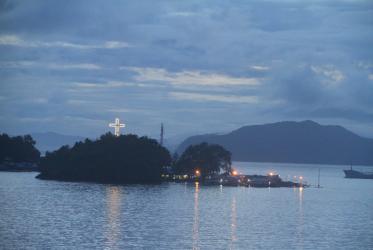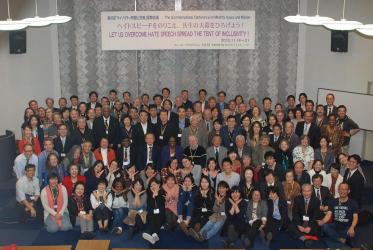Displaying 1 - 20 of 27
06 September 2022
In a COVID-stricken world, “everyone is important”
23 October 2020
The cry of the Papuans in Indonesia
14 November 2019
A faith-based, holistic approach to HIV and AIDS-care
13 March 2019
Fr Alexi - a peacemaker in Syria
21 December 2018
G20 summit: call to pray for peace in Hamburg
07 July 2017
WCC/UN conference calls for coordinated action on refugee crisis
20 January 2016
Consultation considers right to food in context of climate change
15 December 2015
Japanese churches discuss minority issues
01 December 2015
“European solidarity must be strengthened”
29 October 2015
WCC urges responsibility for and support to the refugees in Europe
04 September 2015
WCC Executive Committee speaks out on migrant crises
12 June 2015












